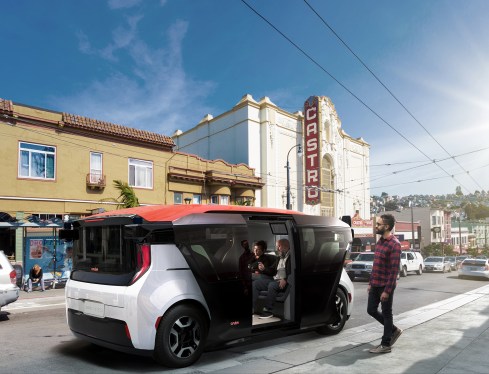General Motors’ Cruise division abandons its origin robotaxi plans and takes a $583 million charge.
Cruise to Use Next-Generation Chevrolet Bolt in Autonomous Operations
In a significant shift, GM’s self-driving car subsidiary Cruise has abandoned plans to build the Origin, a purpose-built robotaxi with no steering wheel or pedals. Instead, the company will use the next-generation Chevrolet Bolt in its autonomous operations. This decision is aimed at simplifying the path to scale and addressing regulatory uncertainty faced by the Origin robotaxi.
Simplifying the Path to Scale
GM Chair and CEO Mary Barra told shareholders that the decision to abandon the Origin project will "simplify our path to scale." The per-unit costs of using the next-generation Chevrolet Bolt in autonomous operations will be significantly lower than those associated with building a dedicated robotaxi like the Origin.
Addressing Regulatory Uncertainty
The Origin’s unique design, which features campfire seating and no steering wheel or pedals, has raised regulatory concerns. The California Department of Motor Vehicles (DMV) had suspended Cruise’s deployment and driverless testing permits in October after an incident involving a Cruise robotaxi dragging a pedestrian. This decision was made to address the regulatory uncertainty surrounding the Origin.
Financial Implications
The abandonment of the Origin project will result in a financial charge of $583 million, tied to the non-cash write-off of Origin assets and other restructuring costs. Cruise also reported an operating loss of $1.14 billion in the second quarter, which included a $605 million impairment charge.
A New Purpose for the Next-Generation Chevrolet Bolt
The next-generation Chevrolet Bolt is expected to begin production in 2025, and GM plans to use it as the basis for its autonomous operations. The company’s spokesperson declined to share details on when the autonomous version of the new Chevy Bolt would be on public roads.
A Shift in Focus
GM and Cruise are optimizing resources to focus development of their next autonomous vehicle on the next-generation Bolt instead of the Origin. This shift creates a more cost-effective and scalable option for pursuing an autonomous future faster, while avoiding the uncertain path to regulatory compliance that could impede scaling of the Origin.
Cruise’s Co-Founder Criticizes Decision
Kyle Vogt, Cruise’s co-founder who resigned as CEO in December, criticized the decision on social media. He expressed disappointment at seeing GM kill the Origin and noted that it would have been amazing for cities. Vogt also hinted at a pattern of GM repeatedly finding itself with a 5-10 year head start but then fumbling the ball and losing the lead.
A Pattern of Disappointment
Vogt’s criticism is not unfounded, as GM has faced several setbacks in its autonomous driving efforts. The company has been plagued by regulatory issues, technical difficulties, and even accidents involving its self-driving cars.
The Future of Autonomous Driving
Despite these challenges, GM and Cruise remain committed to developing autonomous vehicles. The use of the next-generation Chevrolet Bolt in autonomous operations is a significant step forward for the industry. It demonstrates that companies can adapt and evolve their plans to meet changing regulatory landscapes and technological advancements.
Industry Implications
This decision has significant implications for the self-driving car industry. Other companies, such as Waymo and Argo AI, are also working on developing autonomous vehicles using modified versions of existing cars. The use of these vehicles in autonomous operations could potentially accelerate the adoption of self-driving technology on public roads.
Conclusion
The abandonment of the Origin project by Cruise marks a significant shift in the company’s approach to developing autonomous vehicles. By using the next-generation Chevrolet Bolt, GM and Cruise are simplifying their path to scale and addressing regulatory uncertainty. While this decision may be disappointing for some, it represents an important step forward for the industry as a whole.
Related News
- Uber CEO Dara Khosrowshahi resigns from self-driving truck startup Aurora’s board
- Scout Motors EVs will have satellite connectivity
- Rivian wraps 2024 with more than 50,000 EVs delivered
Subscribe to TechCrunch Daily News
Stay up-to-date on the latest news in the tech industry. Subscribe to TechCrunch Daily News for the best coverage of the week.
TechCrunch AITechCrunch’s AI experts cover the latest news in the fast-moving field. Add TechCrunch AI to your subscription choices.
TechCrunch Space
Get the latest advances in aerospace delivered every Monday. Add TechCrunch Space to your subscription choices.
Startups Weekly
Stay up-to-date on the latest news in startups. Startups are the core of TechCrunch, so get our best coverage delivered weekly.

